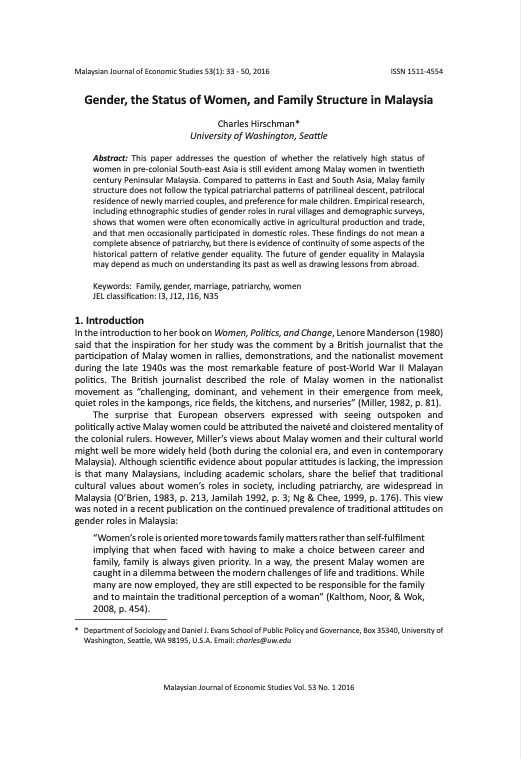Resource information
This paper addresses the question of whether the relatively high status of women in pre-colonial South-east Asia is still evident among Malay women in twentieth century Peninsular Malaysia. Compared to patterns in East and South Asia, Malay family structure does not follow the typical patriarchal patterns of patrilineal descent, patrilocal residence of newly married couples, and preference for male children. Empirical research, including ethnographic studies of gender roles in rural villages and demographic surveys, shows that women were often economically active in agricultural production and trade, and that men occasionally participated in domestic roles. These findings do not mean a complete absence of patriarchy, but there is evidence of continuity of some aspects of the historical pattern of relative gender equality. The future of gender equality in Malaysia may depend as much on understanding its past as well as drawing lessons from abroad.
Keywords: Family, gender, marriage, patriarchy, women

